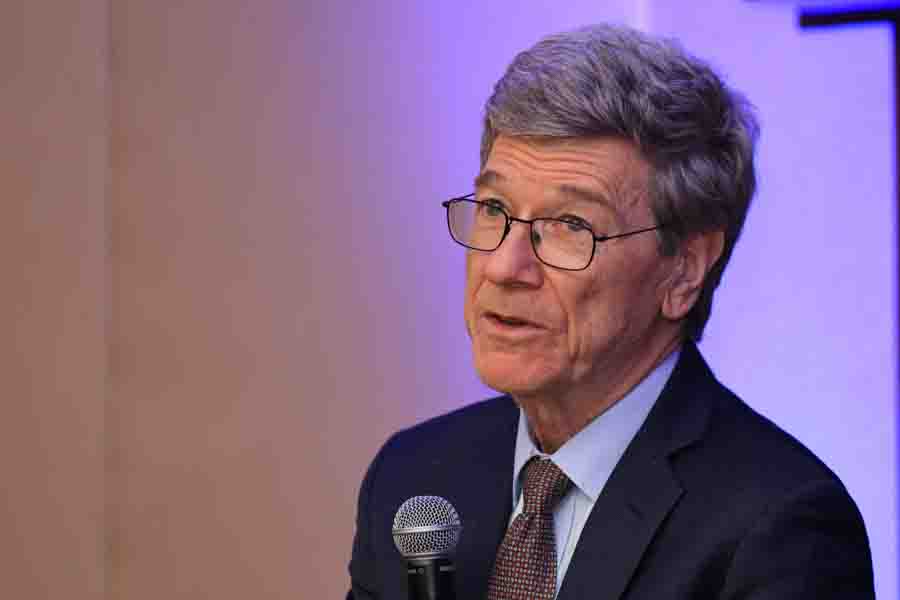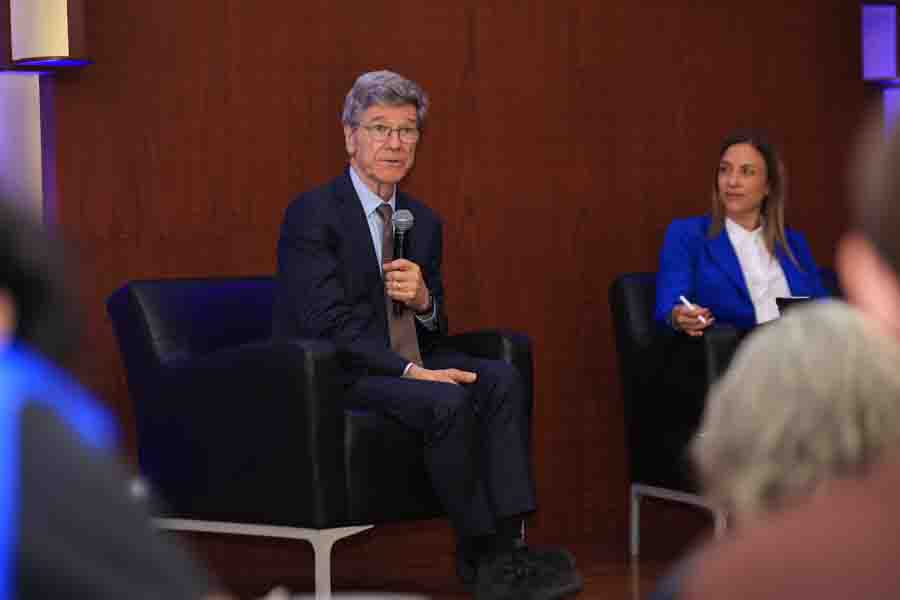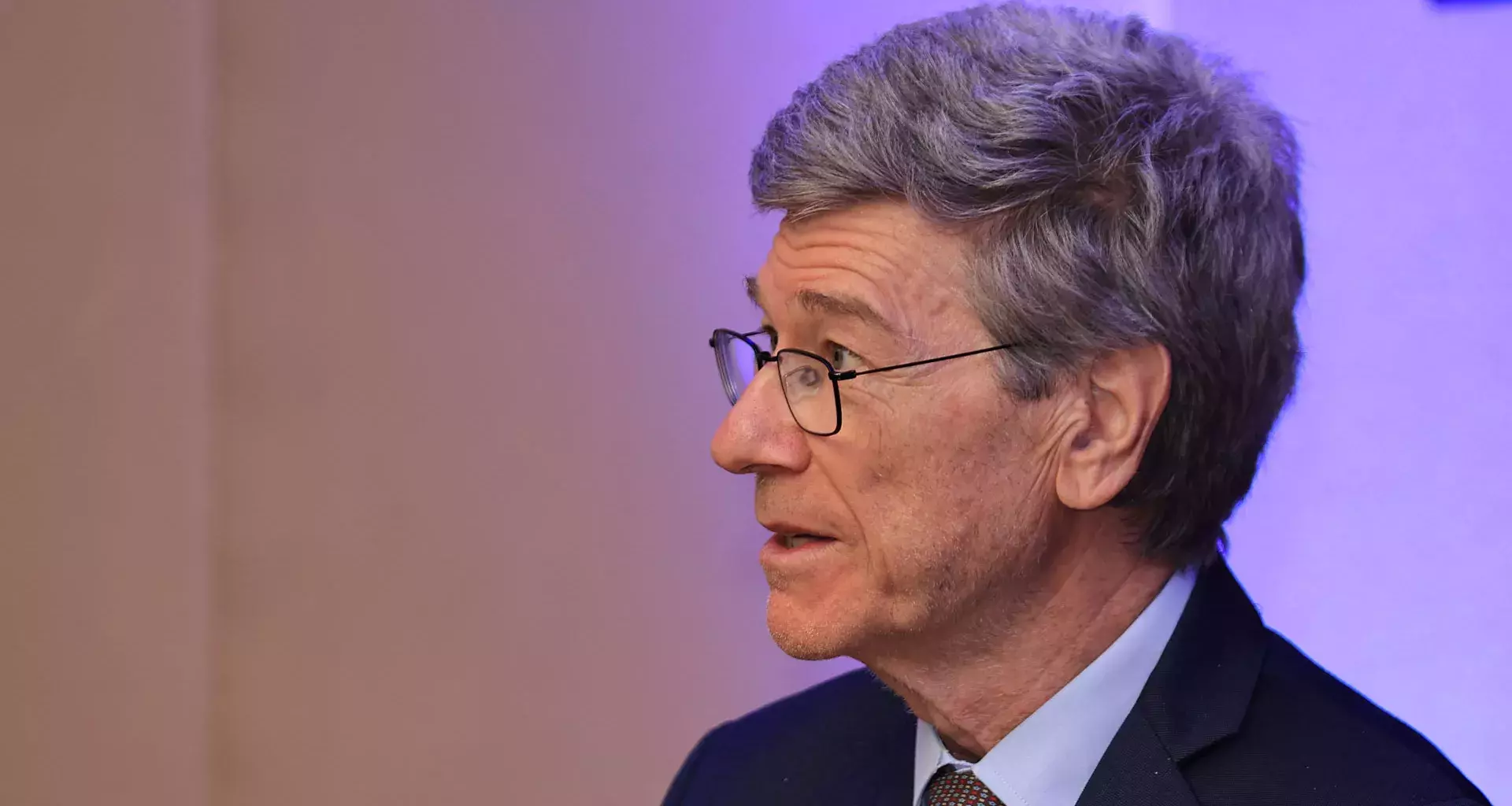In a lecture for students and faculty at Tecnológico de Monterrey’s Santa Fe campus, Jeffrey Sachs, an American economist who holds various positions at the United Nations (UN), explained four causes of the current global crisis.
For the president of the UN Sustainable Development Solutions Network, the four causes of the current global crisis are: geopolitical multipolarity, economic convergence, environmental crisis, and demographic changes.
Sachs is a Sustainable Development Goals (SDGs) Advocate for UN Secretary-General António Guterres and served as a special advisor to former Secretaries-General Kofi Annan and Ban Ki-moon, among holding other positions.
Paulina Campos, Vice President of the Tec’s Mexico City campuses, remarked that: “Dr. Sachs’s leadership has been instrumental in efforts to eradicate poverty, create public health policies, and mitigate climate change.”
These are the four causes of the current global crisis, according to Jeffrey Sachs:
1. Geopolitical multipolarity
Jeffrey Sachs explained that one of the reasons for the current global crisis is geopolitical multipolarity, meaning that many states holding significant power have ideological differences.
“During the Cold War, we supposedly had a two-pole world, which the United States and the Soviet Union led. After that war, the United States declared that it would lead the world, which was a unipolar world.
“Now, the U.S. Secretary of State has said that we are in a multipolar world. What does that mean? The United Statesis a superpower, without a doubt, but so are Russia, China, India, and other countries,” Sachs said.

2. Economic convergence
The second cause of the current global crisis that he mentioned is economic convergence.
According to Sachs, this means that: “The most underdeveloped countries have great potential to grow faster than rich countries and thus narrow the gap between them.”
Sachs mentioned that although this convergence is positive in principle, it causes geopolitical multipolarity, one of the main reasons for global instability.
Furthermore, he explained that economic convergence is driven by the growing opportunity for underdevelopedcountries to make practical, high-return investments.
“When you look at the economic difference between a poor country and a rich one, it’s based on a few practical investments that simply aren’t that expensive and have a very high return. “That’s what economic development is all about,” says Jeffrey Sachs.

3. Changes in global demographics
According to Sachs, another of the causes of the current global crisis are the changes that world demographics are undergoing.
The economist highlighted the case of the North Atlantic region, which includes Europe and the United States, among others. He noted that although this region accounted for 30% of the world’s total population in 1945, it will represent only 10% by the end of the century.
He also discussed the case of China, which today represents 18% of the world’s population, but which will decrease to 8% by the end of the century.
On the other hand, Sachs highlighted the case of the African continent, which will experience very rapid population growth as a result of economic convergence.
“Africa will grow from 1.4 billion people today, the same size as China and India, to 3.5 billion or more. It will represent 30 or 40% of the world’s population and a significant part of the economy,” Sachs reported.
“Dr. Sachs’s leadership has been instrumental in efforts to eradicate poverty and mitigate climate change.” - Paulina Campos
4. Environmental crisis
The economist stated that there are three ecological crises in process, and that these are directly related to economic development and global instability.
“It turns out that current economic development was based on quite dangerous technologies, where the dangers were either not understood, denied, or hidden.
“Climate catastrophe, biodiversity loss, and the pollution crisis all fundamentally result from the industrial revolution, the rise of the global economy, and the increase in human population,” said Jeffrey Sachs.

Tec community collaborates with Sachs on sustainable development
Jeffrey Sachs is President of the UN Sustainable Development Solutions Network, a global network of universities and research institutions working to advance the SDGs and the 2030 Agenda for Sustainable Development.
Paulina Campos mentioned that Tec de Monterrey and the National Autonomous University of Mexico (UNAM) lead this network in Mexico under the guidance of the economist, implementing initiatives that seek a more equitable and sustainable future for the world.
“We have worked with Dr. Sachs for several years in our efforts to achieve the UN Sustainable Development Goals.
“As part of its commitment to this network, the Tec participates in the leadership council and contributes to global sustainability discussions at the network summit held in New York each year,” Campos explained.
To conclude his lecture, which took place on March 4, 2025, at the Tec’s Santa Fe campus, Jeffrey Sachs recalled that: “We’re going through a time of notable global instability, which is why young people are so important for the future.”
YOU’LL ALSO WANT TO READ:





